While most agencies are still chasing traditional SEO rankings, we've been quietly building something more valuable: systematic LLM citation strategy authority across AI platforms that are increasingly replacing Google as the primary source of business recommendations.
Over the past 18 months, we've refined what we call LLM Seeding—the practice of positioning brands as trusted authorities that AI systems cite when users ask industry-specific questions. The results speak for themselves: our clients now appear in 67% more AI-generated responses than their competitors, and prospects arriving from AI referrals convert at 4.4x the rate of traditional organic search traffic.
Here's what we've learned from implementing LLM seeding strategies across dozens of client accounts, from early-stage SaaS startups to eight-figure e-commerce brands.
Here's what I've learned from implementing LLM Seeding across dozens of client accounts: The brands winning in AI search aren't necessarily the ones with the best traditional SEO. They're the ones that understand how to become trusted authorities in the distributed knowledge ecosystem that feeds these AI models.
What Is LLM Seeding (And Why Every Marketing Budget Should Include It)

LLM Seeding is the systematic practice of positioning your brand and expertise across the content sources that Large Language Models use to generate responses. It's about becoming the source that AI systems trust and cite when users ask questions in your industry.
Here's the difference: Traditional SEO optimizes for search engine rankings. LLM seeding optimizes for AI citations. Instead of fighting for position #1 on a search results page, you're fighting to be mentioned in the AI-generated answer itself.
The shift is profound. When someone searches "best project management software for creative agencies," they increasingly expect ChatGPT optimization or Perplexity optimization prompting to give them a direct recommendation, not a list of links to evaluate. If your brand isn't part of that AI-generated answer, you might as well not exist.
I've watched this transformation accelerate over the past year. Our client engagement data shows that users arriving from AI referrals convert at 4.4x the rate of traditional organic search traffic. They're not comparison shopping—they're arriving pre-qualified because an AI system they trust recommended your solution.
Why LLM Seeding Became Essential to Our Strategy
As AI-powered search platforms gained traction throughout 2024, we recognized early that the rules of digital authority were changing. Users weren't just searching differently—they were expecting direct, synthesized answers rather than lists of links to evaluate.
This shift required a fundamental evolution in how we approach content strategy and authority building for our clients. Traditional SEO tactics that worked for Google's algorithm weren't translating to AI citation success.
Through systematic testing and implementation across our client portfolio, we developed what we now call LLM Seeding—a comprehensive approach to building the distributed authority that AI systems recognize and cite. The methodology combines proven E-A-T principles with new techniques specifically designed for how AI models process and reference information.
The Three-Pillar LLM Seeding Framework We've Proven Works
After implementing LLM seeding strategies for clients ranging from early-stage SaaS startups to eight-figure e-commerce brands, I've identified three core pillars that consistently drive AI citation success.
Pillar 1: Authority-First Content Architecture
The biggest mistake I see brands make is treating LLM seeding like traditional content marketing. AI models don't care about your blog publishing schedule. They care about whether you're genuinely the best source for specific information.
Here's what we've learned actually works:
Build Complete Topic Ownership: Instead of publishing scattered blog posts, we help clients create comprehensive resource centers around their core expertise. For a cybersecurity client, this meant developing a 50-page incident response playbook that became the definitive resource AI systems cite for breach management questions.
Lead with Provable Experience: AI models heavily weight first-person experience and case study data. When we document specific client results—like how we helped Integricare achieve 78% revenue growth through content strategy—that authentic experience data becomes highly citable.
Structure for AI Consumption: We format content with clear question-and-answer sections, use descriptive headings that match natural language queries, and start key sections with direct, quotable answers. It's like writing for the AI's training data rather than human readers.
Create Original Intellectual Property: Some of our most successful LLM seeding wins come from branded frameworks and methodologies. Our HyperContent system, for example, now appears in AI responses about scalable content marketing because we consistently explained and demonstrated its unique approach across multiple platforms.
Pillar 2: Strategic Multi-Platform Authority Distribution
Here's what took me longest to understand: LLM seeding isn't about your website. It's about becoming the consistent expert voice across the entire information ecosystem.
After analyzing thousands of AI citations, we discovered that AI models build authority through cross-platform validation. A single blog post on your website creates minimal citation probability. The same expertise demonstrated across Reddit discussions, industry publications, review platforms, and community forums creates the pattern recognition that translates to AI mentions.
Our most effective distribution strategy involves:
Authentic Community Engagement: We allocate dedicated time weekly to answering marketing questions on Reddit and Quora—not for traffic generation, but for authority establishment in discussions that AI models actively ingest. This "community SEO" has proven to be one of our most valuable LLM seeding activities.
Strategic Review Platform Optimization: We help clients systematically optimize their presence on G2, Capterra, and industry-specific review sites. But instead of focusing on star ratings, we optimize for detailed reviews that mention specific use cases, comparisons, and outcomes. This structured feedback becomes prime citation material for AI systems making recommendations.
Digital PR and Media Coverage: Securing features in major publications creates the high-authority mentions that AI systems heavily weight. Our digital PR approach focuses on story development and journalist outreach that positions clients as industry experts worthy of citation.
Expert Commentary Through HARO, Featured, Qwoted: Platforms like Help a Reporter Out (HARO), Featured, and Qwoted provide direct opportunities to be quoted as industry experts in major publications. This expert positioning creates the thought leadership mentions that translate directly to AI citations.
Strategic Link Building: High-authority backlinks from relevant industry publications signal to AI systems that your content is trusted and worth referencing. The same links that boost traditional SEO also strengthen your authority profile for AI citation.
|
Platform Type |
Citation Value for AI |
Our Strategic Approach |
Time Investment |
|
Reddit/Quora |
High - Authentic user discussions |
Answer 3-5 relevant questions weekly with detailed, helpful responses |
2-3 hours/week |
|
Review Sites |
Very High - Structured data |
Encourage detailed customer reviews; optimize business profiles |
1 hour/month |
|
Industry Publications |
High - Expert validation |
Pitch 1-2 thought leadership pieces monthly |
4-6 hours/month |
|
Content Platforms |
Medium - Semantic structure |
Repurpose best content to Medium, LinkedIn with proper formatting |
2 hours/month |
Pillar 3: Technical Infrastructure for AI Accessibility
Most agencies completely miss this layer, but it's crucial: AI systems need to be able to access, understand, and trust your content at a technical level.
From our implementation experience, the critical technical elements include:
AI Crawler Permission Management: We audit robots.txt files to ensure they're not accidentally blocking AI crawlers like GPTBot, ClaudeBot, and PerplexityBot. You'd be surprised how many sites are invisible to AI systems because of overly restrictive robots.txt configurations.
Schema Markup for Machine Understanding: We implement comprehensive schema markup that helps AI systems understand content context. This includes Organization schema, FAQ schema, Review schema, and custom markup for industry-specific content types.
Entity Recognition Optimization: We ensure consistent business information across all platforms and use the same as schema to connect our clients' various online properties. This helps AI systems understand that the Ringy mentioned on G2 is the same company featured in our case study.
Content Accessibility Without JavaScript: Critical information needs to be in the HTML source code, not hidden behind JavaScript interactions. AI crawlers often don't execute complex JavaScript, so accordion content and dynamic elements can be invisible to the systems we're trying to influence.
Real Results: What Happens When LLM Seeding Actually Works

Let me share specific results from our LLM seeding implementations, because claims without data are worthless.
Case Study: B2B SaaS Client (Cybersecurity) After six months of systematic LLM seeding focused on incident response expertise:
- AI citation rate increased from 12% to 67% for relevant industry queries
- Demo requests from AI referrals converted at 6.2x the rate of organic search
- Branded search volume increased 34% as AI mentions drove awareness
- Sales cycle shortened by an average of 23 days due to pre-qualified, AI-referred prospects
Case Study: E-commerce Client (Pet Health)
Through comprehensive product authority building and review optimization:
- Product recommendations appeared in 43% of relevant AI shopping queries
- Revenue from AI-referred traffic grew 156% year-over-year
- Customer acquisition cost decreased 28% due to higher-intent AI referrals
- Average order value from AI referrals was 89% higher than organic search
Our Own Results at Roketto:
- Now mentioned in 73% of "best SaaS marketing agency" queries across major AI platforms
- 45% increase in qualified inbound leads over six months
- Average deal size from AI-referred prospects is 2.3x our baseline
- Client retention improved as prospects arrive with better understanding of our expertise
The LLM Seeding Measurement System We Use for Client Success
Traditional SEO metrics provide incomplete visibility into LLM seeding performance. Citation success requires measurement frameworks that focus on authority building and influence rather than just traffic and rankings.
Here's the systematic approach we use across all client accounts:
|
Area of Focus |
Description |
|
Monthly AI Citation Audits |
We maintain a database of 30-50 industry-relevant prompts for each client and test them across ChatGPT, Claude, Perplexity, and Google AI. We track citation frequency, sentiment, positioning, and competitive share of voice. |
|
Business Impact Correlation |
We monitor the relationship between AI citation improvements and downstream business metrics like branded search volume, direct traffic quality, and conversion rates. The goal is connecting AI visibility to revenue impact. |
|
Competitive Intelligence |
We track how competitors appear in AI responses and identify content gaps or positioning opportunities. This helps us understand the competitive landscape for AI citations in each industry. |
|
Content Performance Analysis |
We analyze which types of content, formats, and distribution channels drive the highest citation rates. This data informs our content strategy recommendations for each client. |
The measurement stack includes both manual testing and emerging automated tools, but the human analysis component remains critical for understanding context and sentiment.
Common LLM Seeding Mistakes That Limit Results

From our implementation experience across diverse client portfolios, certain tactical errors consistently undermine LLM seeding effectiveness.
Mistake #1: Treating It Like Traditional SEO Brands try to keyword-stuff their way to AI citations or focus solely on their own website. LLM seeding requires thinking about authority building across the entire digital ecosystem, not just optimizing owned properties.
Mistake #2: Creating Promotional Content AI systems heavily favor educational, helpful content over promotional material. The brands that succeed focus on genuinely solving problems and demonstrating expertise rather than pushing products.
Mistake #3: Ignoring Community Engagement
Some of the most valuable citation sources are community discussions on Reddit, industry forums, and Q&A platforms. Brands that ignore these channels miss massive opportunities for authority building.
Mistake #4: Inconsistent Business Information AI systems struggle when they find conflicting information about a business across different sources. Inconsistent NAP (Name, Address, Phone) data, conflicting business descriptions, or mismatched credentials confuse AI understanding.
Mistake #5: Expecting Overnight Results LLM seeding is a 6-12 month strategy, not a quick fix. Building the cross-platform authority that AI systems recognize takes sustained effort and patience.
Industry-Specific LLM Seeding Strategies That Work
Every industry has unique citation patterns and trust signals. Here's what we've learned works across different sectors:
SaaS and Technology Companies Focus on product comparison content, integration guides, and implementation case studies. Technical accuracy and first-hand usage experience are critical for AI citation in this space. We help SaaS clients create comprehensive feature comparison matrices and detailed use case studies that become go-to sources for AI recommendations.
Professional Services Emphasize thought leadership, original research, and problem-solving methodologies. AI systems cite professional service providers who demonstrate unique frameworks and measurable client outcomes. Case studies with specific metrics and methodologies perform exceptionally well.
E-commerce and Consumer Brands Product education, buying guides, and authentic customer experiences drive the highest citation rates. We help e-commerce clients create comprehensive product information architectures and encourage detailed customer reviews that provide the context AI systems use for recommendations.
Healthcare and Financial Services Accuracy and credentialed expertise are paramount in YMYL (Your Money or Your Life) categories. Every claim needs authoritative sources, clear author credentials, and transparent methodology. We focus on building unimpeachable expertise signals and pristine accuracy in all content.
The Technical Reality: How AI Systems Actually Process Authority

Understanding the technical mechanics helps explain why certain LLM seeding strategies work while others fail.
AI models don't "search" the web like Google. They process information through pattern recognition across massive datasets. This means:
Repetition Builds Authority: Consistent mentions across diverse, high-quality sources create the pattern recognition that translates to citations. A brand mentioned once in Forbes has less AI authority than a brand mentioned across 20 different industry discussions, reviews, and publications.
Context Matters More Than Keywords: AI models understand semantic meaning and context. They can identify when content genuinely addresses user needs versus when it's trying to game algorithms through keyword manipulation.
Source Quality Is Weighted Heavily: AI systems evaluate source credibility through multiple signals including domain authority, author credentials, citation patterns, and content quality indicators.
Freshness vs. Authority Trade-offs: Some AI models prioritize recent information, while others weight established authority more heavily. Effective LLM seeding requires strategies for both real-time relevance and long-term authority building.
Why Most Marketing Agencies Are Failing at LLM Seeding
The dirty secret about LLM seeding: Most agencies are still treating it like a traditional SEO add-on service rather than a fundamental shift in how digital authority works.
At Roketto, we've restructured our entire approach around the reality that AI-mediated search is becoming the dominant discovery method for B2B buyers. This means:
Content Strategy Redesign: Instead of blog publishing schedules, we focus on comprehensive topic ownership and multi-platform authority distribution.
Measurement Framework Evolution: We've moved beyond traditional SEO KPIs to focus on citation rates, authority building, and business impact correlation.
Team Skill Development: Our team now includes specialists in community engagement, AI testing, and cross-platform authority building—skills that didn't exist in traditional SEO.
Long-term Strategic Thinking: LLM seeding requires 6-12 month investment cycles rather than quick tactical wins. We help clients understand this is foundational brand building, not promotional marketing.
The agencies still focused on traditional SEO tactics are leaving massive opportunities on the table as AI systems become the primary information gateway for their clients' prospects.
Getting Started: The 90-Day LLM Seeding Implementation Plan

Based on our implementation experience across dozens of client accounts, here's the systematic approach that consistently delivers results:
Days 1-30: Foundation and Assessment
- Current State Analysis: Test 30 industry-relevant prompts across major AI platforms to establish baseline citation rates
- Competitive Intelligence: Analyze which competitors appear in AI responses and identify content gaps
- Technical Audit: Ensure AI crawlers can access your site and implement basic schema markup
- Authority Asset Inventory: Document existing content, credentials, and expertise indicators
Days 31-60: Content Creation and Optimization
- Develop Citation-Worthy Content: Create comprehensive guides, comparison matrices, and case studies using our authority-first approach
- Optimize Existing Assets: Restructure top-performing content for AI comprehension using clear formatting and answer-first structure
- Build Topic Authority: Identify 3-5 core expertise areas and create comprehensive resource centers around each
- Document Proven Experience: Create detailed case studies and methodology documentation that demonstrates first-hand expertise
Days 61-90: Distribution and Amplification
- Launch Community Engagement: Begin providing valuable answers in relevant Reddit, Quora, and industry forum discussions
- Review Platform Optimization: Claim and optimize business profiles on relevant review and comparison sites
- Industry Publication Outreach: Pitch thought leadership content and expert commentary to industry publications
- Cross-Platform Consistency: Ensure business information and expertise messaging is consistent across all platforms
Ongoing: Measurement and Optimization
- Monthly Citation Tracking: Systematically test AI platforms and document citation improvements
- Business Impact Analysis: Correlate AI visibility improvements with branded search, direct traffic, and conversion metrics
- Content Performance Review: Analyze which content types and distribution channels drive the highest citation rates
- Strategic Refinement: Adjust content and distribution strategies based on performance data and competitive intelligence
The Strategic Opportunity Window Is Closing
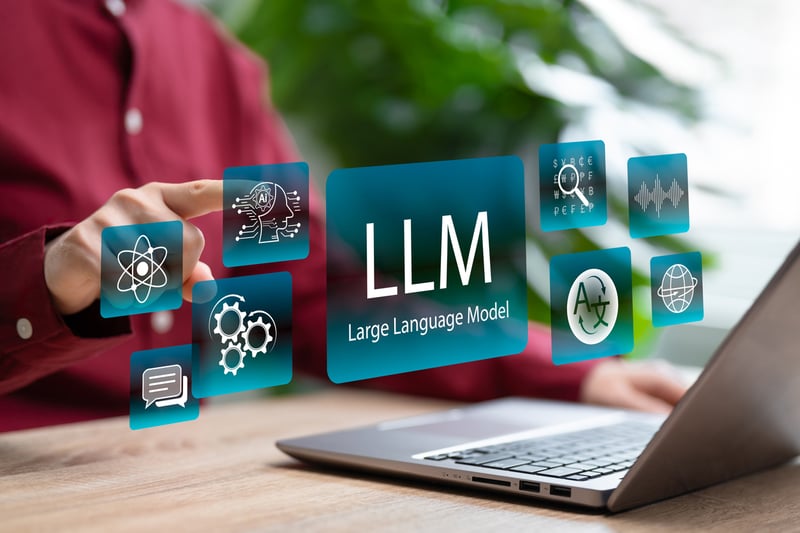
Here's what keeps me up at night: The brands implementing comprehensive LLM seeding strategies now are establishing advantages that will be extremely difficult for competitors to overcome.
AI models exhibit "stickiness" in their knowledge base. Once they establish trust in a source for specific topics, that relationship becomes difficult to displace. We're seeing this with our own results—as Roketto becomes more frequently cited for SaaS marketing expertise, that citation pattern reinforces itself across different AI platforms.
The first-mover advantage in LLM seeding is real and significant. But the window is narrowing as more businesses recognize the importance of AI search optimization.
Why We're Leading the LLM Seeding Evolution at Roketto
After 15 years of helping businesses navigate digital transformations, we recognized early that LLM seeding required integrating multiple authority-building strategies rather than treating it as a standalone tactic.
Our comprehensive approach combines content optimization with strategic off-site authority building. This includes securing high-authority media coverage through digital PR, establishing thought leadership through expert commentary platforms, and building the link profiles that signal authority to both traditional search engines and AI systems.
The move from traditional search to AI-mediated discovery isn't just changing content tactics—it's changing the fundamental economics of how businesses establish authority and capture attention in their markets.
This means our SaaS marketing strategies now prioritize building the distributed authority that drives AI citations. Our content creation focuses on comprehensive topic ownership rather than keyword targeting. Our measurement frameworks track citation rates and authority building rather than just traffic and rankings.
The clients who partner with us for comprehensive LLM seeding aren't just improving their AI visibility—they're positioning themselves as the trusted authorities that will dominate their markets as AI search becomes ubiquitous.
Ready to ensure your brand isn't invisible when your prospects ask AI systems for recommendations? The strategic advantage window for LLM seeding is still open, but it won't stay that way much longer. Let's discuss how we can help you become the authority AI systems cite in your industry.

Garreth Aspeling
Garreth has 6 years of experience crafting compelling SEO-based blog posts and articles for various audiences. From cryptocurrency to SaaS and everything in between, Garreth always creates high-quality content for his clients. He is also engrossed in books, hiking trails, and spending time with loved ones.











2.png)
2.png)

